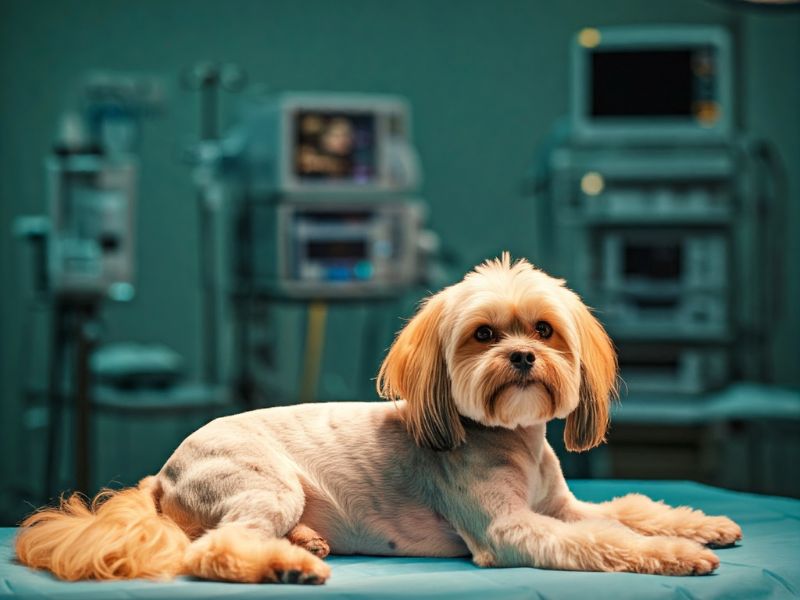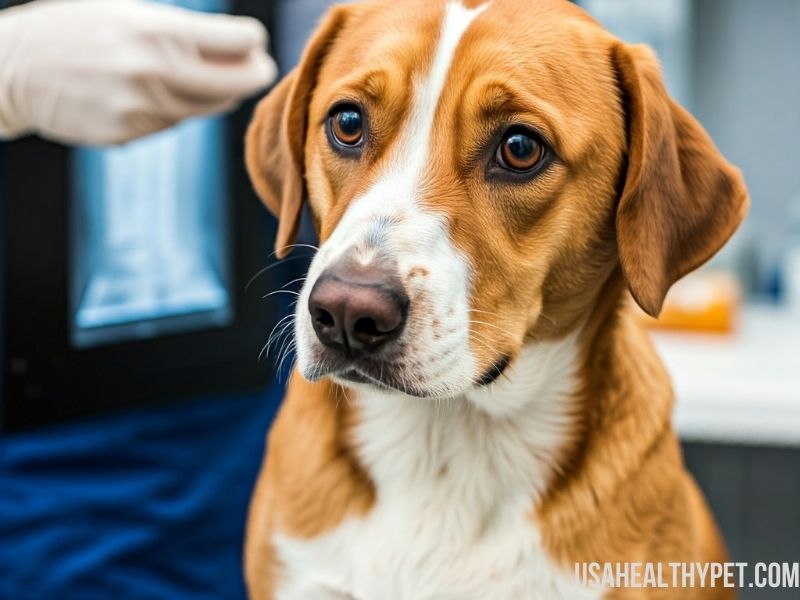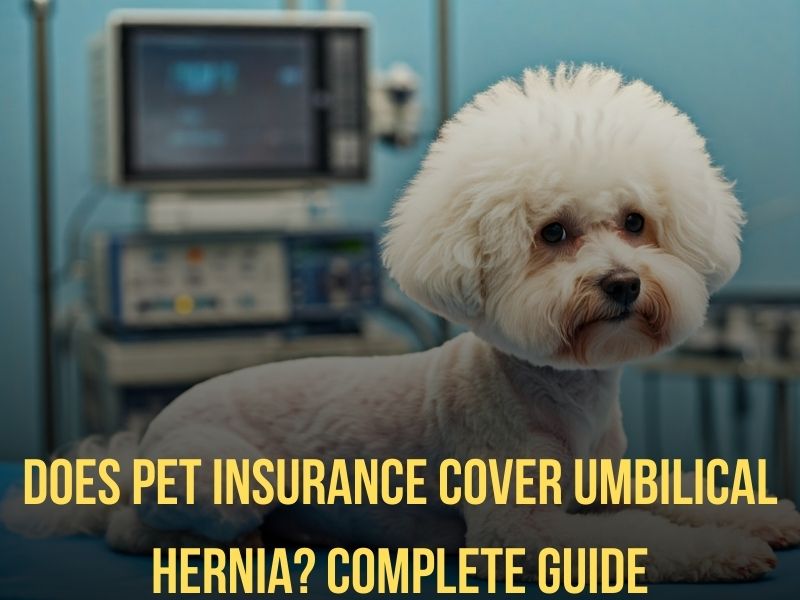Taking care of a pet often feels like caring for a small, furry child. You make sure they’re well-fed, happy, and, most importantly, healthy.
But what happens when they need medical care for something unexpected, like an umbilical hernia? If you’re here, you’re probably wondering if pet insurance can cover this specific health issue.
Let’s dive deep into this topic, answer all your questions, and make sure you’re prepared to get the best care possible for your pet.
Pet Insurance For Umbilical Hernia: Key Points
- Umbilical hernias in pets are common, especially in puppies and kittens, and often harmless.
- Pet insurance may or may not cover umbilical hernia treatment, depending on the policy and timing of diagnosis.
- Pet insurance may or may not cover umbilical hernia treatment, depending on the policy and timing of diagnosis.
- If detected early, some hernias resolve on their own, but larger or complicated cases may need surgery.
- Consulting your vet and insurance provider directly helps clarify what’s covered under your specific plan.
What is an Umbilical Hernia in Pets?
An umbilical hernia is a small bulge or lump near a pet’s belly button, caused by an opening in the abdominal muscles where tissue or even part of an organ, like the intestines, can push through.
Think of it like a little “escape hatch” that didn’t fully close after birth. While it might sound alarming, many umbilical hernias are harmless and can even close on their own, especially in puppies and kittens.
These hernias are often congenital, meaning pets are born with them. In most cases, they are small and do not cause discomfort, but larger hernias might require surgery to prevent complications down the road.
Signs and Symptoms of an Umbilical Hernia
Recognizing an umbilical hernia in your pet is easier than you might think. Look for:
- A soft bump or bulge near the belly button area
- Swelling around the abdomen, especially when your pet is active or excited
- Tenderness or sensitivity when you touch the area
- Difficulty eating or bloating, which may occur if intestines are affected (this is rare but more serious)
While most hernias don’t cause immediate harm, it’s essential to monitor them, as they could lead to complications over time.
If you notice any signs of pain or distress, or if the hernia seems to be growing, consult your veterinarian immediately.

How Are Umbilical Hernias Treated in Pets?
In many cases, umbilical hernias are harmless and don’t need treatment.
For mild cases, veterinarians often advise “watchful waiting,” where you monitor the hernia as your pet grows. Some hernias even close up on their own.
However, if the hernia is large or causing discomfort, surgery may be recommended. Surgical repair involves closing the opening in the muscle, which is usually straightforward and has a high success rate.
For pets needing neutering or spaying, vets may fix the hernia during that procedure, which minimizes stress and recovery time for your pet.
Does Pet Insurance Cover Umbilical Hernia?
Now, the big question: does pet insurance cover the costs of an umbilical hernia? The answer isn’t a straightforward yes or no—it depends on a few factors, including your insurance policy and your pet’s medical history.
- If the Hernia is Considered Pre-Existing: Most pet insurance providers won’t cover pre-existing conditions, and unfortunately, congenital conditions often fall under this category. This means if your pet was born with an umbilical hernia, some insurance plans may not cover the treatment.
- Waiting Periods: Insurance policies typically have a waiting period for new enrollments, often ranging from a few days to a few weeks. If your pet’s hernia is diagnosed during this time, it might not be eligible for coverage.
- Type of Policy: Comprehensive pet insurance plans are more likely to cover conditions like hernias, whereas basic accident-only policies may not.
In short, some insurance policies may cover an umbilical hernia if it’s discovered after enrollment and falls under an illness category, not a pre-existing condition.
Studies on pet insurance coverage trends indicate that policies are more likely to cover illnesses or conditions that develop after enrollment rather than congenital or pre-existing issues. According to a 2021 report from the North American Pet Health Insurance Association (NAPHIA), only about 25% of pet insurance policies in the U.S. cover congenital conditions, primarily through high-end or comprehensive plans.
Factors That Affect Coverage for Umbilical Hernia
Several key factors can determine whether pet insurance will cover an umbilical hernia:
- Pet’s Age and Health: Younger pets with no prior issues might have better coverage options.
- Policy Details: A comprehensive policy typically has more extensive coverage.
- Insurance Provider’s Terms: Each provider has unique terms regarding congenital or hereditary issues.
- Time of Diagnosis: If the hernia was discovered before insurance enrollment, it’s often deemed pre-existing and excluded from coverage.
Understanding your policy and asking specific questions about congenital conditions can help clarify your coverage.

Types of Pet Insurance Policies and Their Coverage
Pet insurance policies come in various types, each with its own coverage level. Here’s a quick breakdown:
- Accident-Only Policies: These are the most basic and only cover injuries from accidents. Umbilical hernias often don’t qualify under these policies since they’re considered a health condition, not an accident.
- Accident and Illness Policies: These policies cover both accidents and illnesses, and depending on the terms, they may include treatments for umbilical hernias if not pre-existing.
- Comprehensive or Wellness Plans: Comprehensive policies cover a broad range of conditions, preventive care, and surgeries. These plans are the most likely to include hernia repairs, but they come at a higher premium.
How to Choose the Right Pet Insurance
Finding the right pet insurance can feel overwhelming, but it’s all about aligning coverage with your pet’s needs. Consider:
- Your Pet’s Breed and Health History: Some breeds are more prone to congenital conditions, so choose a policy with hereditary condition coverage.
- Policy Exclusions: Read the fine print for exclusions, especially regarding congenital or pre-existing conditions.
- Budget and Premiums: Premiums vary widely; comprehensive plans cost more but offer broader coverage.
- Customer Reviews: Hearing other pet owners’ experiences can help you gauge a provider’s reliability and customer service.
Tips for Filing a Claim for Hernia Coverage
When filing a claim for an umbilical hernia, keep the process smooth by following these tips:
- Gather Medical Records: Include diagnosis and treatment plans from your vet.
- Submit Receipts and Bills: Ensure all receipts are clear and itemized for easy review.
- Know Your Policy Terms: Familiarize yourself with your plan’s deductibles, reimbursement rate, and waiting period.
- Check with Your Provider Beforehand: Some providers offer pre-authorization, allowing you to confirm if treatment will be covered before proceeding.

Frequently Asked Questions
1. Can a hernia in pets heal on its own?
Yes, some umbilical hernias, particularly small ones, can close up on their own over time. However, larger hernias or ones causing pain may require surgery.
2. Is umbilical hernia surgery risky for pets?
No surgery is without risk, but umbilical hernia repair is generally safe with high success rates. Recovery is often quick, especially if combined with spay or neuter surgery.
3. How much does hernia surgery cost for pets?
The cost varies by location and clinic, but it generally ranges from $150 to $400. The price can be higher if the hernia is complicated or requires additional care.
4. Are congenital conditions always excluded from pet insurance?
Not always, but many providers consider congenital conditions pre-existing if they’re detected before enrollment. Some comprehensive policies do cover congenital issues, so it’s worth checking.
5. What are common breeds prone to umbilical hernias?
While any breed can have a hernia, some, like Boxers and Pekingese, are more prone to congenital hernias. However, these hernias are often mild and manageable.

Pingback: Does Pet Insurance Cover MRI Scans for Pets? Complete Guide